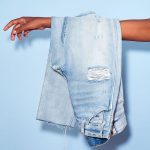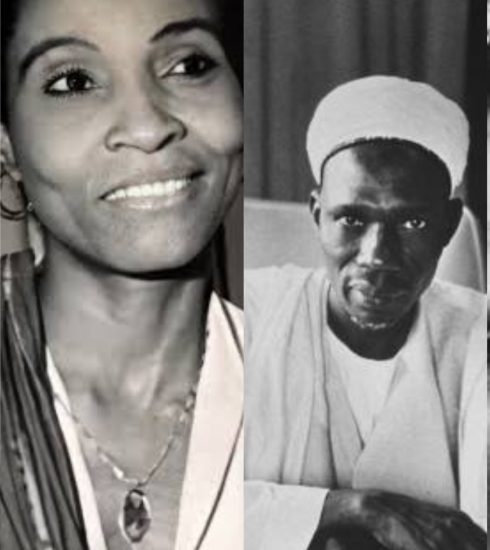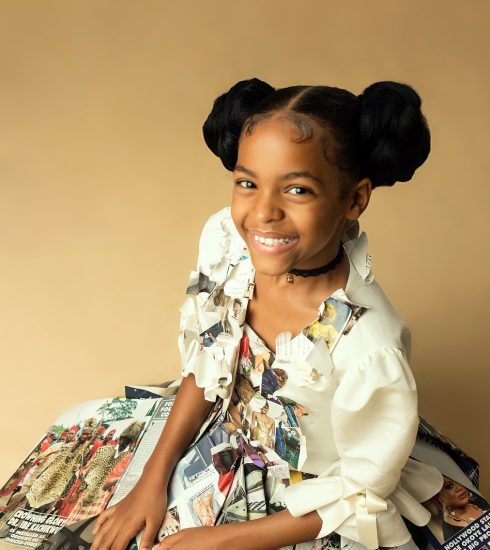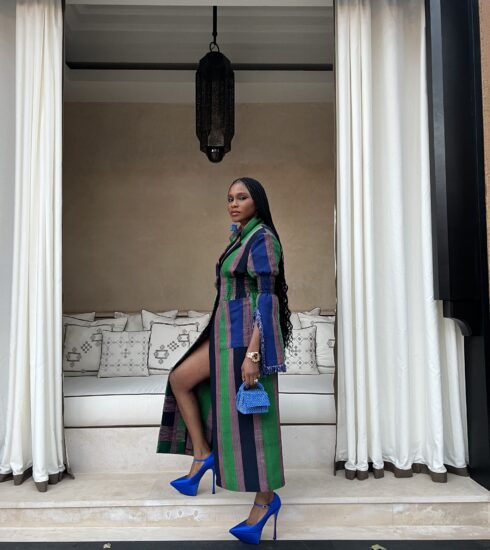Breaking Grounds: Banke Kuku’s Trailblazing Approach to Fashion and Inclusivity
The terms diversity and inclusion have recently gained popularity in the fashion business. Many fashion brands are adopting the notion that fashion should be accessible to all people, regardless of their background, size, or shape. By dismantling boundaries and questioning conventional notions of beauty, these firms are transforming Nigeria’s fashion industry and making it more diverse and inclusive. Among these brands is Banke Kuku, a Nigerian fashion label established in 2011 by Banke Kuku-Lawson.
Banke Kuku-Lawson is a Nigerian-born fashion entrepreneur. She is the CEO and Creative Director of Banke Kuku Textiles, a company that makes custom-printed and woven textiles for the interior design and fashion industries. Acclaimed for her distinct interpretation of opulent loungewear, Bankedraws inspiration from the cultures of the time she spent in Lagos and London. These cultural influences have a significant impact on her vivid patterns, which produce eye-catching statement prints. Her business is known for being among Nigeria’s most socially conscious due to its dedication to advancing diversity and inclusivity.
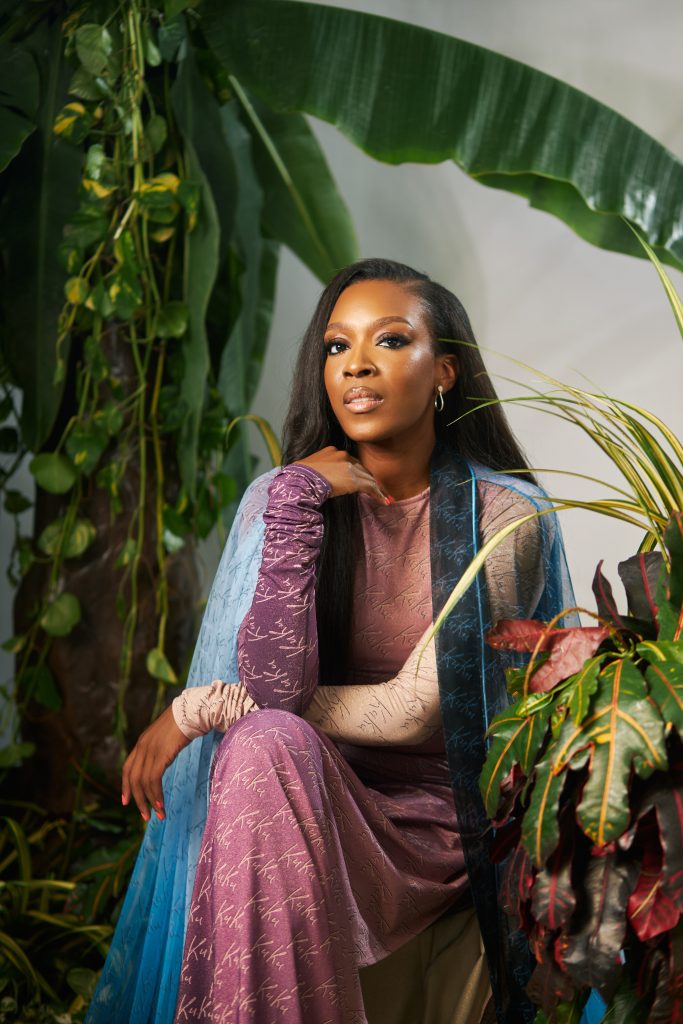
In this interview with THEWILL DOWNTOWN’s Dorcas Akintoye, Banke Kuku-Lawson talks about the complexities of her journey as a fashion designer, the future aspirations for her brand, and the inspiration behind her brand’s name. She also discusses International Women’s Day and its theme, “Inspire Inclusion and how her brand has contributed to fostering inclusivity within the fashion industry.
Banke, your journey in the fashion industry is truly remarkable. Can you share the story of how your upbringing in both Lagos and the UK influenced your unique design perspective?
Nigeria and the UK both had a major influence on my design aesthetic. My love for creativity was identified while growing up in Lagos, and it was nurtured in the UK. I would say I’m a fusion of both cultures because I’m inspired by my journey and everything around me.
Banke Kuku has made waves in the world of textiles and fashion. What inspired you to create your own label, and how did you come up with the name?
Banke Kuku, the brand, started very organically. It was my side hustle, which became my main hustle. I was working full-time at a fashion house in London and didn’t have the time to balance both. BankeKuku gave me more fulfilment. It wasn’t an easy decision to take it on full-time because of the uncertainty of where I was going to take the business. I took the leap of faith.
I started off designing textiles for fashion houses. Then, I went on to have my own soft furnishing line, which was successful and sold globally. The loungewear was to compliment the soft furnishing. I found my true joy in fashion design. It took me years to identify my true passion, but I wouldn’t change anything, and I absolutely love what I do.
I chose the name Banke Kuku because my brand is a reflection of me.
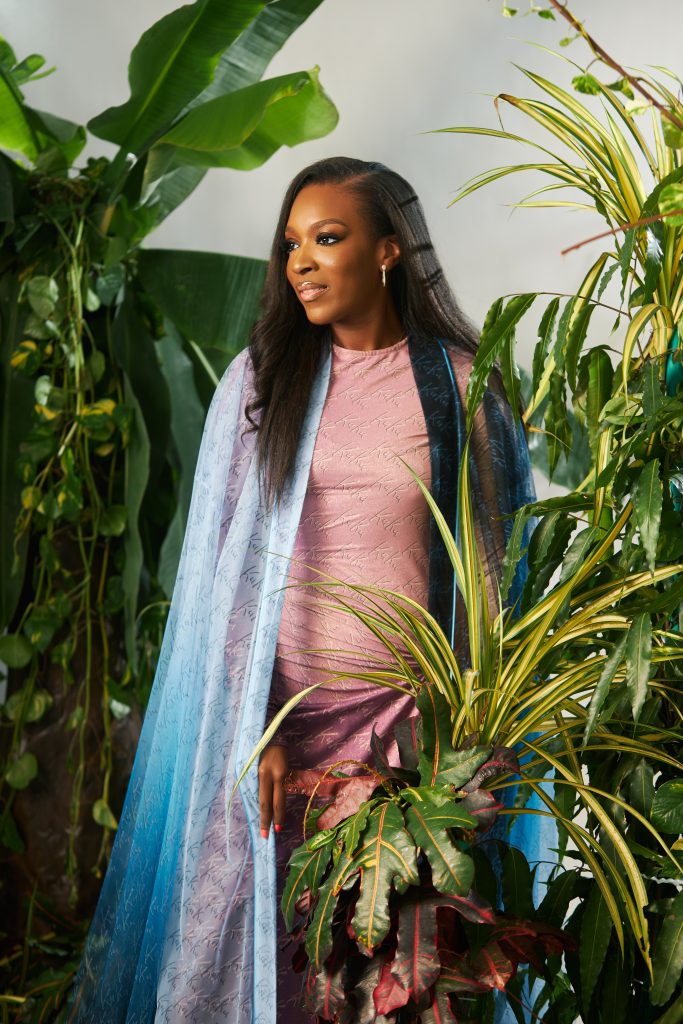
Your career has spanned both fashion and interior design. How do you find inspiration for your designs in both of these creative fields?
My aesthetic in both industries is always consistent because it comes from who I am. I’m inspired by the storytelling of what is around me. My latest collection is inspired by nature. I tell many nature stories throughout my work. In this collection, I felt like my brand needed to own who we are, and it was really the beginning of something really special. In the beginning, there was Eden. I was trying to perfect what I do and Eden was the perfect garden. I made Eden true to my identity by telling the garden story through a Nigerian lens. All the prints were inspired by plants and animals from Nigeria.
Fashion designers often face challenges. Can you tell us about a significant challenge you’ve encountered in your career and how you overcame it?
The fashion industry in Nigeria has its challenges. Designers have to wear many hats, from design to logistics, which is overwhelming. Currently, there are lots of conversations about strengthening the industry, which will certainly make things easier for designers. With the right support, I believe the industry can prevail.
As a designer who’s been featured in prestigious publications like Vogue, what advice do you have for emerging designers looking to make their mark in the industry?
Be consistent. Good work takes a long time; be patient.
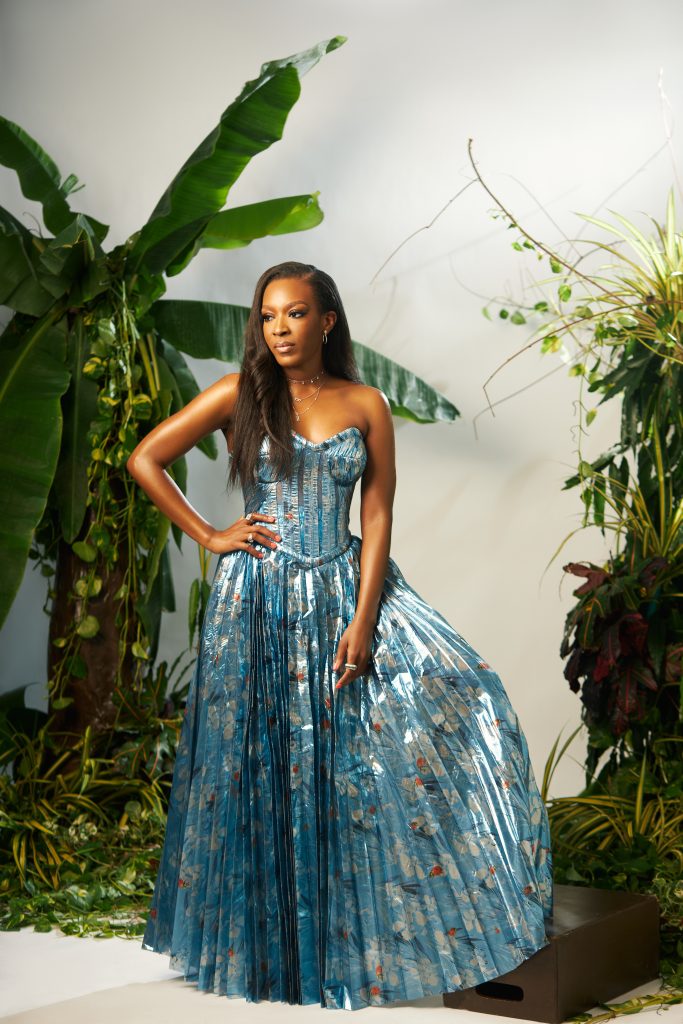
Your designs have been praised for their modern and unique take on luxury loungewear. What does luxury mean to you, and how does it influence your work?
To me, luxury is moving at a slow pace so you can take in the exceptional experience. Slow fashion is about creating pieces using good quality materials and crafting them with immense attention to detail. This is what we do at Banke Kuku.
In a dynamic and ever-changing fashion industry, what strategies do you employ to stay innovative and relevant with your brand?
I’m a very inquisitive person, not just about fashion but about life. I encourage my team to be the same. It’s so important to keep learning. I love seeing and soaking up information. It inspires me. This is what keeps me innovative.
If you had to choose one word to describe the essence of Banke Kuku, what would it be, and why?
Inclusive. We are about everyone. All body types, races, and religions.
In a world increasingly focused on sustainability, how does Banke Kuku address eco-friendly practices and ethical considerations in your designs and production?
We have a minimum waste policy. Offcuts are used for scrunchies, eye masks, etc. Digital printing uses low heat, which is better for the ozone layer.
What are your future aspirations for BankeKuku, and where do you see your brand in the next few years?
We plan to support our local community as best as we can through charity and education. We currently support two charities that are fighting against gender-based violence. WARIF and Mirabel Foundation. We look forward to working with many more and pushing our own causes one day.
We will expand our global footprint and continue to tell our Nigerian stories through fashion and textiles.
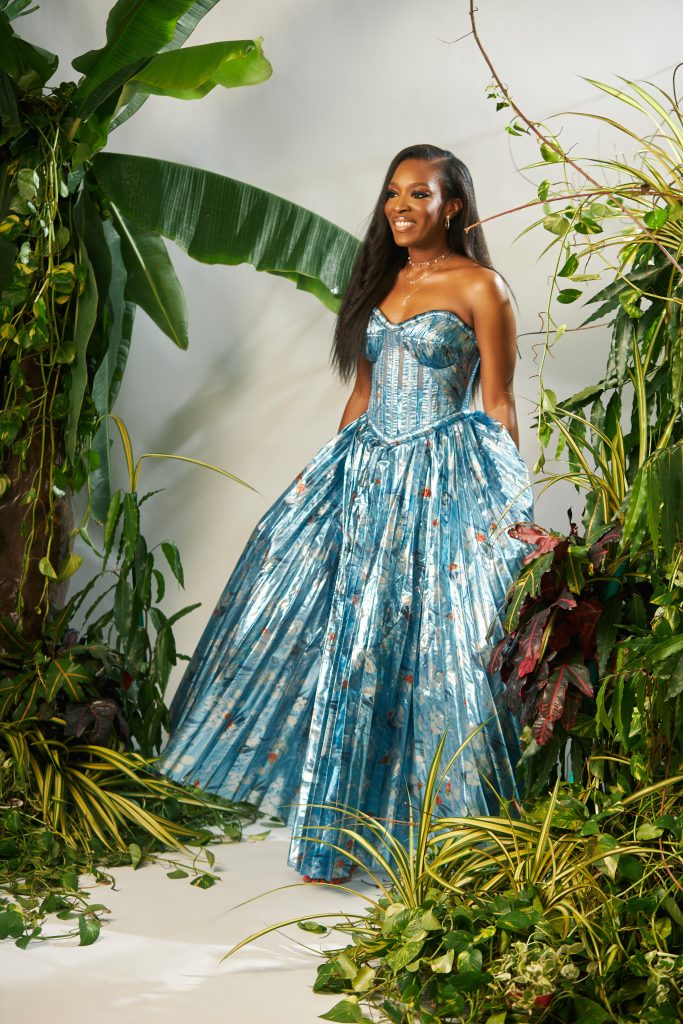
Your work in the fashion industry is complemented by your dedication to social causes. How does your advocacy against gender-based violence align with the values of Banke Kuku, and what initiatives have you undertaken to raise awareness?
All over the world today, women face gender inequality, abuse, violence, and so much more. This is why 80% of my workforce in my fashion business is female. I am intentional about this. There are very limited job opportunities for women in Nigeria, where they feel valued. It’s important for women to have their own. This builds on her confidence to fight for her right to be respected. I have spoken at conferences, and I support charities that don’t deal with the physical damage of gender-based violence but start right at the beginning, which is education. Educating children and adults that no means no and we must respect each other.
Gender-based violence is a pervasive issue globally. What motivated you to actively contribute to the cause, and how do you see the fashion industry playing a role in promoting awareness and change?
I contribute to this cause because I want to see more women win. Gender-based violence is a big issue that holds women back. Did you know one in four people in Nigeria has faced gender-based violence, and the majority of them are women?
The fashion industry can do several things to support this cause. Firstly, the industry can continue to create job opportunities for women. Secondly, we can use fashion-based platforms to educate people about gender-based violence to raise awareness. Lastly, the industry can make donations to rehabilitate displaced women and help with the physical and mental scars.
If you could collaborate with any fashion designer, living or from history, who would it be and why?
Alexander McQueen. I love how he used British culture to influence his designs. I think his strong British influence and my Nigerian could have something amazing.
You’ve had the opportunity to work with renowned fashion houses and even contributed to fabric design for the Royal collection at Buckingham Palace. Can you tell us about one of your most memorable experiences during this time?
My most memorable experience during this time was winning the ‘Women in Making’ competition, which was run by a Lingerie brand called Triumph in 2014. It was an incredible time. I gained fantastic press, which drew a lot of attention to my business. I was privileged to have the most incredible mentors. Sophia Webster, Roskanda and Georgina Coulter (head fashion buyer of Fenwick at the time). Having these mentors gave me a better understanding of the business of fashion which really helped the business.
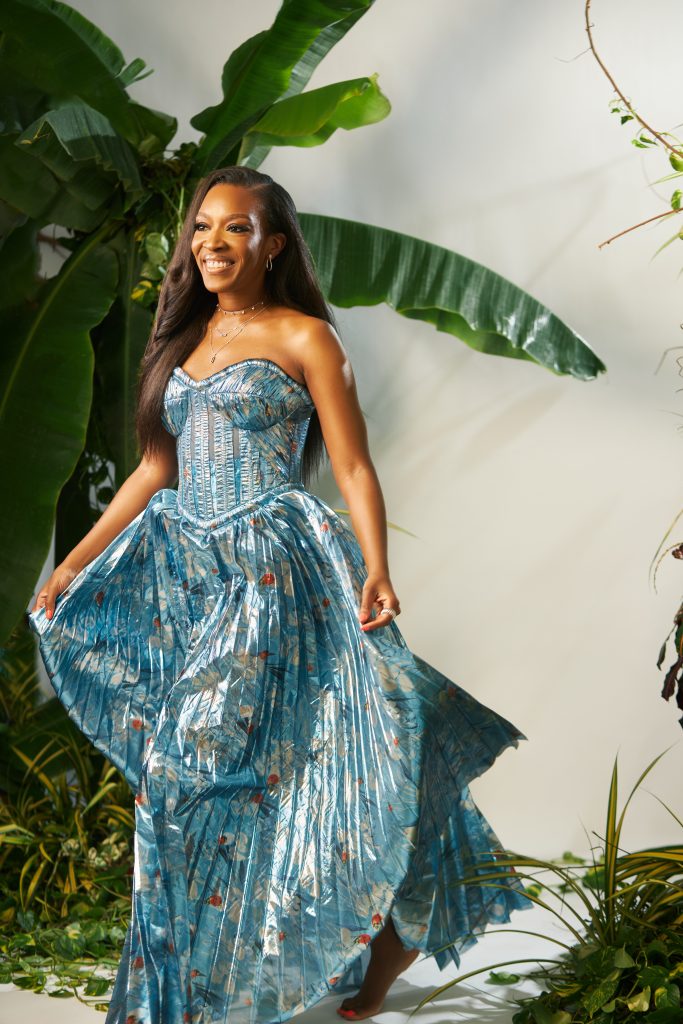
Becoming the first Nigerian designer stocked at GaleriesLafayette Doha is a significant achievement. How did this partnership come about, and what impact do you think it has on the global fashion industry?
Galeries Lafayette approached me, and it has been an honour to be the first Nigerian to stock with them. We are now in our third season of stocking with the store. It shows the world that Nigerian designers can be consistent. It is a great moment for the Nigerian fashion industry. I’m telling Nigerian stories to the world, and It’s fantastic to be positioned next to world-renowned designers.
Your textiles are known for their bold patterns and captivating impact. How do you go about choosing or creating these statement prints?
I design all prints for Banke Kuku. I always choose something I’m passionate about, which helps me express myself as an artist. I start with a strong subject matter, and the creative process begins. It can take months to create a print.
In light of the International Women’s Day theme “Inspire Inclusion,” how does Banke Kuku contribute to fostering inclusivity within the fashion industry, and what steps do you take to ensure diverse voices are heard and represented?
Nothing shows inclusion more than my kukutribe. The kukutribe is my community both online and offline. My friends tease me about how I still get so excited when I see people wearing my pieces. I get excited because every woman or man who wears Banke Kuku wears it in their unique wayand it is beautiful to see. So, every time I see a piece being worn it’s like I’m seeing something new.
I’m starting a new series which is called Conversations with Banke where I speak to my kukutribe from different industries, cultures, and women and men of all ages. I’m very excited about this.
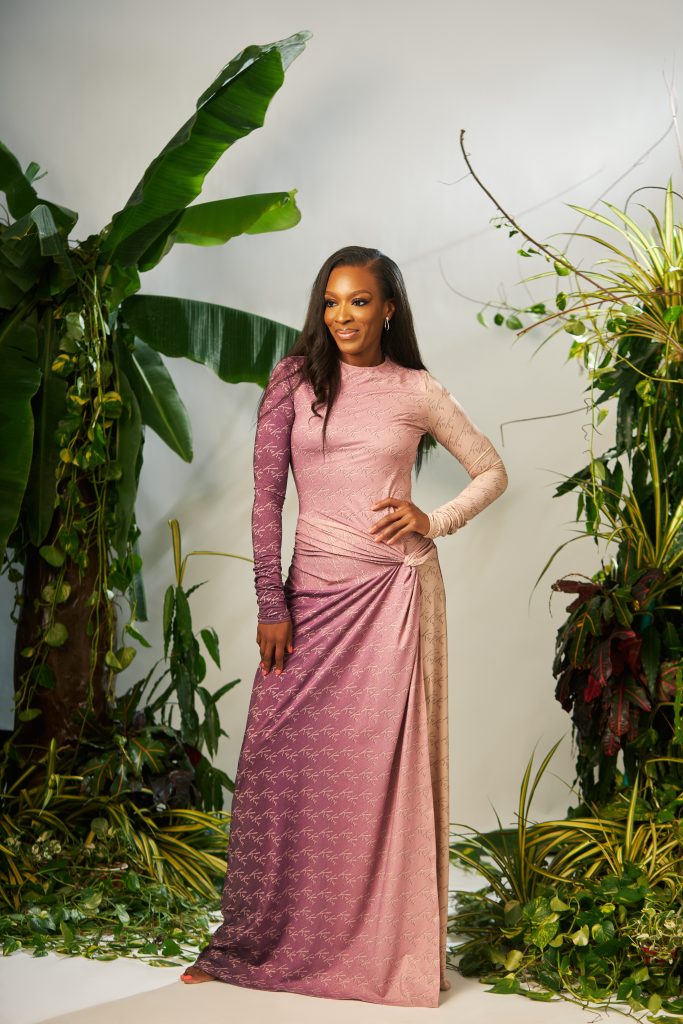
“Inspire Inclusion” implies breaking barriers. As a successful entrepreneur and designer, what advice do you have for women aspiring to enter the fashion world, particularly those aiming to challenge and redefine traditional norms?
Focus on you. Don’t try to be someone else or, imitate what another person is doing or get sidetracked by what others are achieving. Finding yourself and being confident in yourself is a journey. It’s not necessarily a fashion journey; it’s a life journey that you will have to apply to your creative career. I’m constantly on a self-discovery journey. It’s constant because life is ever-changing. When it changes you have toadapt yourself to it.
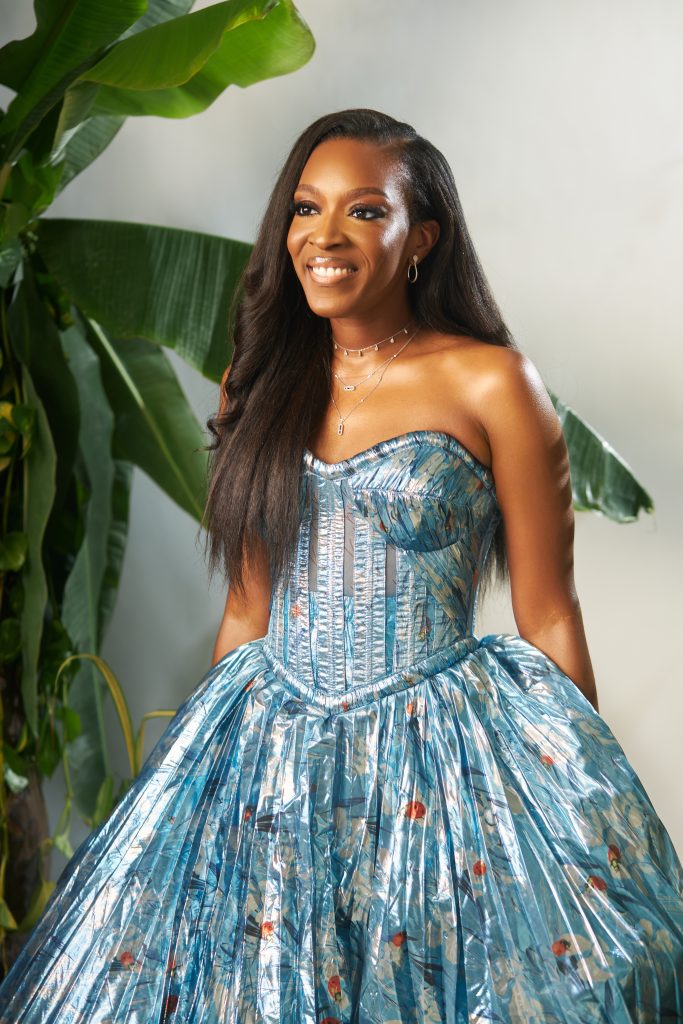
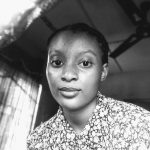
Dorcas Akintoye is a versatile writer with a passion for beauty, fashion, relationships, and culinary delight. With a keen eye for detail and a passion for storytelling, she adds a touch of elegance to every topic she explores. She is a writer at THEWILL DOWNTOWN.


